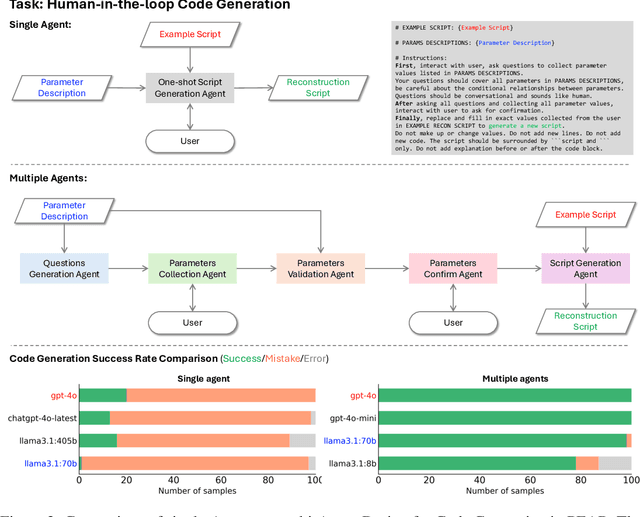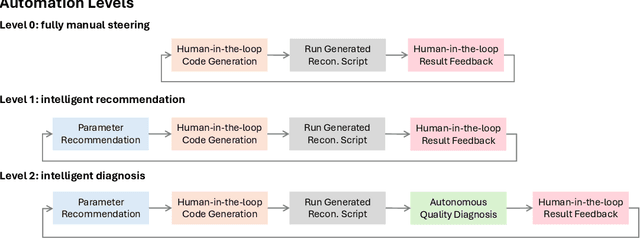PEAR: A Robust and Flexible Automation Framework for Ptychography Enabled by Multiple Large Language Model Agents
Paper and Code
Oct 11, 2024



Ptychography is an advanced computational imaging technique in X-ray and electron microscopy. It has been widely adopted across scientific research fields, including physics, chemistry, biology, and materials science, as well as in industrial applications such as semiconductor characterization. In practice, obtaining high-quality ptychographic images requires simultaneous optimization of numerous experimental and algorithmic parameters. Traditionally, parameter selection often relies on trial and error, leading to low-throughput workflows and potential human bias. In this work, we develop the "Ptychographic Experiment and Analysis Robot" (PEAR), a framework that leverages large language models (LLMs) to automate data analysis in ptychography. To ensure high robustness and accuracy, PEAR employs multiple LLM agents for tasks including knowledge retrieval, code generation, parameter recommendation, and image reasoning. Our study demonstrates that PEAR's multi-agent design significantly improves the workflow success rate, even with smaller open-weight models such as LLaMA 3.1 8B. PEAR also supports various automation levels and is designed to work with customized local knowledge bases, ensuring flexibility and adaptability across different research environments.
 Add to Chrome
Add to Chrome Add to Firefox
Add to Firefox Add to Edge
Add to Edge